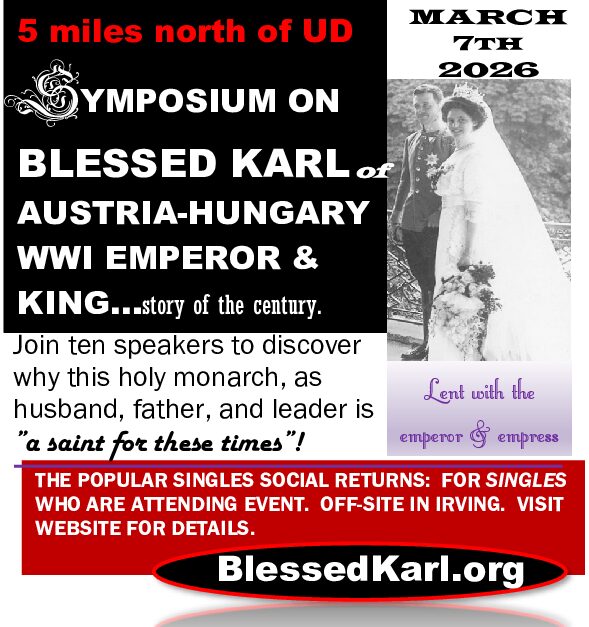
A saintly example for us
Disclaimer:
All articles published within this section of The Cor Chronicle are the opinions of the respective authors and do not necessarily reflect the opinions of The Cor Chronicle.
Recently, the Anscombe Society and the Cinema Connoisseurs Club collaborated in showing Terrence Malick’s “A Hidden Life,” a film which details, in stunning cinematics, the last part of the life of Franz Jägerstätter, an Austrian farmer martyred by the Third Reich. The viewing was followed several days later by a discussion with Fr. John Bayer on Franz’s life and significance.
Franz has received a fair amount of attention of late at the University of Dallas. Many students have seen “A Hidden Life.” Some, inspired by his life, have used their Rome Semester as an opportunity to visit his home in Sankt Radegund. Two articles, one about him and one about Malick’s movie, have appeared in the pages of The Cor Chronicle in the past few years. So why keep talking about him?
If you have not seen Malick’s film, it is difficult to explain why. So watch it. It is well worth the three hours and, in my opinion, only improves with subsequent viewings.
When I watched it recently (for the third time), I was struck by the strength of the re- action it received from the room: a sad, reverent silence. Perhaps this should have been no surprise; after all, the film is grippingly real, tragic and moving. Among a crowd of college students, however, the reality of the film seemed so much more evident.
Indeed, something about the film appeals to the heart of a college student. There is so much talk about discernment and vocation at this point in our lives that it often becomes repetitive and dull. The lives of Franz and his wife Franziska, however, seem to provide fresher and richer answers to these belabored topics. Their example, though simple, is eloquent.
Primarily, Franz and Franziska demonstrate the importance and beauty of children. Franz was unique in his village because he played with his children, and the film depicts him delightfully entertaining them. The saintly couple demonstrate that the love of marriage is not stifled but fulfilled in the love of children. Fatherhood and motherhood emerge as the final, fruitful extensions of a love first born between a man and a woman.
Within their own relationship, Franz and Franziska display the loveliness of affection and the natural goodness of the body. When I watch the film, I almost wonder if I should be allowed such a glimpse into the intimacy of their marriage, though the film contains nothing explicitly sexual.
Rather, through Malick’s portrayal, one realizes that the deepest moments of love between human beings are completely outside the secular emphasis on self-seeking pleasure. How much more meaningful it is, the film proclaims, when two in love laugh together, speak frankly with one another and work side by side.
But, of course, the movie contains one more element: the fact that Franz was guillotined for refusing to swear an oath of loyalty to Hitler. Hence, he must write to his children informing them of his own death. Furthermore, he must be tearfully parted from his wife, never to see her again on earth.
Franz and Franziska are young and married. They are, I expect, what many of us hope to be in only several years. But as idyllic as their life is, they realize that it is worth giving up everything for the sake of Franz’s conscience. They display that no matter how evident the goodness of their lives was, it bears no comparison to the hope of eternal life that awaits them.
Thus, the life of Franz and Franziska presents a striking challenge to those of us who think about marrying and raising families today. What kinds of marriages shall we have? What kinds of families shall we raise? Inspired by these saintly spouses, should we not aspire to live the kind of loving, self-giving life that they led?
Moreover, we too ought to consider that the spouse (and even the friends) we choose ought to be of such a kind that they, with eyes fixed on heaven, will be happy to stand by us as we make the difficult choices of conscience, that— terrifying as it may seem—we will inevitably be called to make.

It is indeed a powerful film. In this day and age millions of Christians have lost their way and continue to support a man who kept a copy of Hitler’s speeches by his bedside. Supporting Trump because he tells you he is ‘pro-life’ is following the false profit.